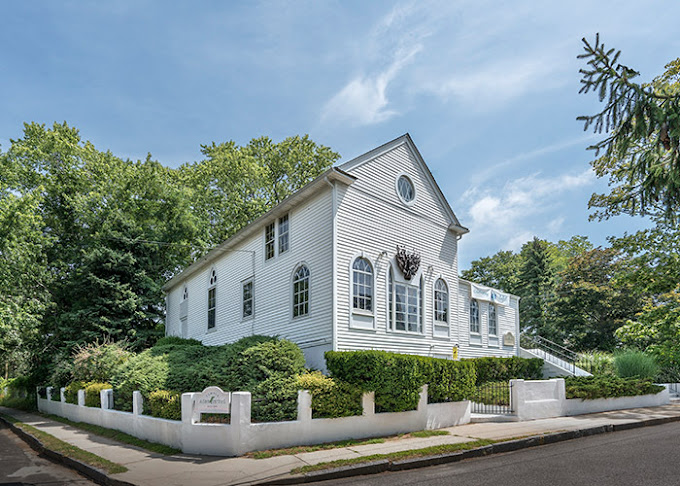
About 43 percent of the food purchased for human consumption goes to waste in the United States, and much of that ends up in landfills, where it releases methane into the atmosphere.
The average fruit or vegetable sold to an American consumer travels 1,200 miles from farm to table, requiring the burning of fossil fuels and extensive packaging.
And a United Nations study conducted in 2021 found that two-thirds of all greenhouse gas emissions come from the household level.
Those were some of the sobering statistics that members of Temple Adas Israel’s Social Justice Committee heard at a Zoom presentation, “Environmental Justice Is Social Justice,” held Monday, March 20, to explore threats facing the environment and steps individuals can take to help.
“We have a duty to leave the world a better place than we found it,” said Andrea Klausner, the event’s moderator, who added that the committee had extended its concern to environmental justice at the suggestion of one of its members, Rivalyn Zweig.
“Repairing the world should not only include direct human services, but a duty to the Earth itself,” said Klausner. “We must protect our wildlife, plants, trees, and water, so that our children and grandchildren can inherit a better world.”
Five panelists — Group for the East End President Bob DeLuca; Josephine DeVincenzi, a founder of Carbon Crew; Suffolk County Legislator Al Krupski; Abby Clough-Lawless of the Perfect Earth Project; and Frank Quevedo, the director of the South Fork Natural History Museum — took part in the event.
They offered overviews of what their organizations do, discussed what they see as the major environmental problems facing the East End, and offered suggestions for how ordinary citizens can help solve them.
“From our perspective, everything comes down to land use,” said DeLuca of the Group, which has been an environmental advocacy organization for more than 50 years. “Every acre we can protect of woodland, farm field, old field area is directly related to helping us combat the issue of climate change.”
He suggested that people take on one large project at their home. In his case, it was installing a solar thermal hot water system that reduced his need for oil heat. Then, he suggested tackling small projects, such as replacing incandescent bulbs in one room of the house or installing power strips to shut off electronic devices that draw small amounts of power even when they aren’t in use. Third, he said, it’s important for people to get engaged in the local political process.
DeVincenzi said Carbon Crew was formed to encourage small groups of people to get together, read, and discuss ways to combat climate change.
“The most important thing we can do to solve the climate crisis is talk about it,” she said.
DeVincenzi had numerous suggestions. People should buy less food and make sure they eat what they buy, she said, pointing out that they would save on their food budget and reduce the amount of wasted food being buried in landfills. She also urged them to buy locally grown food, have energy audits done of their home, and consider buying solar panels or other green infrastructure, and purchasing a hybrid or electric car.
“Never doubt that a small group of thoughtful, committed citizens can change the world,” she said.
Krupski agreed. “Involvement with the community is really critical,” he said, adding that most elected officials enjoy getting input from people who are passionate about an issue.
He cited a list from groundwater protection to combatting sea level rise as major concerns.
He said people should make an effort to reuse things rather than toss them in the trash, provide habitat for pollinators, and rethink the idea of irrigating their lawns. “The culture has changed,” he said. “Twenty years ago, not everybody had a lawn sprinkler system.” He said the water you often see running down the street from overworked irrigation systems is the same water that someone could be drinking.
Clough-Lawless, a landscape designer, works with the Perfect Earth Project, which encourages people to plant native species and eschew the use of pesticides and other toxins in their home landscapes.
The biggest problems facing the East End, she said, were overdevelopment and an extractive lifestyle. It’s important for people to realize “I’m not an overseer, I’m a partner” with the Earth, she said.
Clough-Lawless offered a lengthy list of suggestions including setting aside more space in a typical lawn and garden for natural plants to grow and provide habitat and food sources for animals, including pollinators and birds. She urged people to plant native plants, remove invasives, stop using chemicals, switch to electric lawn equipment if they use power equipment at all, maintain biomass by leaving lawn clippings and leaves on the ground, use irrigation wisely to provide deep, thorough watering but only when needed, and allow as much dead wood as possible to remain to provide habit and a source of food.
Quevedo touched on the importance of education. “If you don’t understand something, how are you going to protect it?” he asked.
Like the others, he urged people to buy locally grown food and avoid waste, provide habitat for critical pollinators, and take other steps toward sustainability.
The East End’s most valuable resource, Quevedo said, is its drinking water and steps need to be taken to protect it.
“We’re in a crisis situation,” he said. “We have to do something now, or we are going to lose everything.”